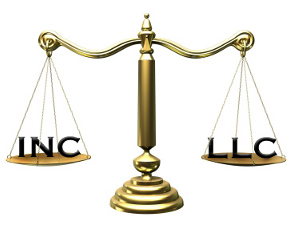 So you decided to start a new business. Now what?
So you decided to start a new business. Now what?
Your business should be operated as a limited liability entity to protect your personal assets. That is the central reason to form a business entity. One of the first and most important decisions you now face is deciding what form of business entity to own and operate your business venture. There are several options, including:
- sole proprietorship or general partnership;
- limited partnership;
- limited liability company;
- limited liability partnership;
- S-corporation; or
- regular corporation (C-corporation)
As a business owner, your choice is fairly simple. Most Indiana businesses should operate either as an S-corporation, regular corporation, or limited liability company. These three entities offer business owners limited asset protection and relative ease of operation. In deciding the best business structure to utilize, each business owner should consider a variety of general factors and also the circumstances unique to the business, its owners, and its opportunities and challenges.
Before forming a new business entity, you should speak with a knowledgeable business attorney who will spend time with you to discuss and consider factors such as these:
- Will your business consist of an operating entity or a holding company?
- What are your likely tax liabilities from the business?
- If you select an operating entity, can you minimize your FICA taxes?
- How will you finance your business?
- What is your exit strategy?
- What business risks are you trying to avoid?
- What are the costs, benefits and burdens of creating a particular business structure?
- Do you have the requisite training and vigilance to maintain a more complicated structure?
Sole proprietorship and general partnerships offer no protection to you as an owner or to the business entity itself. By contrast, limited liability companies, limited partnerships and corporations are limited liability entities, which provide significant but limited protection from liabilities arising from business operations. Generally, what is at risk for you, as an owner, is the value of the investment you made in the entity. Business lawyers refer to this as “inside-out protection,” because the liabilities arising inside the entity will not reach your assets held outside of the entity.
Of course, selecting the right entity is just the first step in this process. Careful drafting of documents, proper filing of documents with governmental offices, and establishing processes and procedures to follow the so-called “corporate formalities” are equally important steps in limiting the liability risks to business owners. These topics are addressed in other articles, but the entire process starts with the list of factors relevant to selecting the right entity.
If you are starting a new business or are unsure whether your current entity is properly structured, contact your business attorney to review the issues raised in this article.